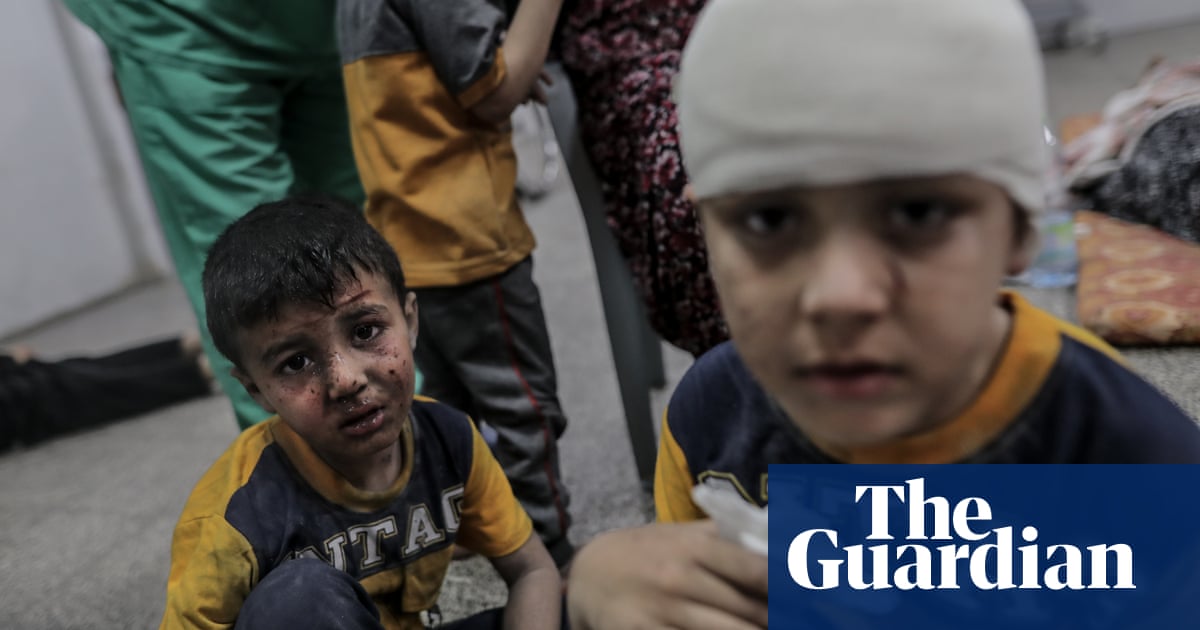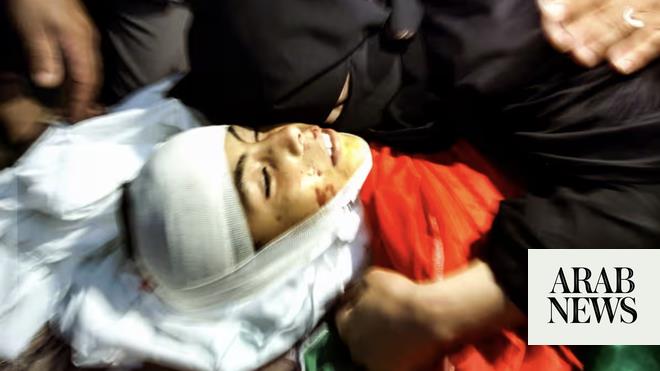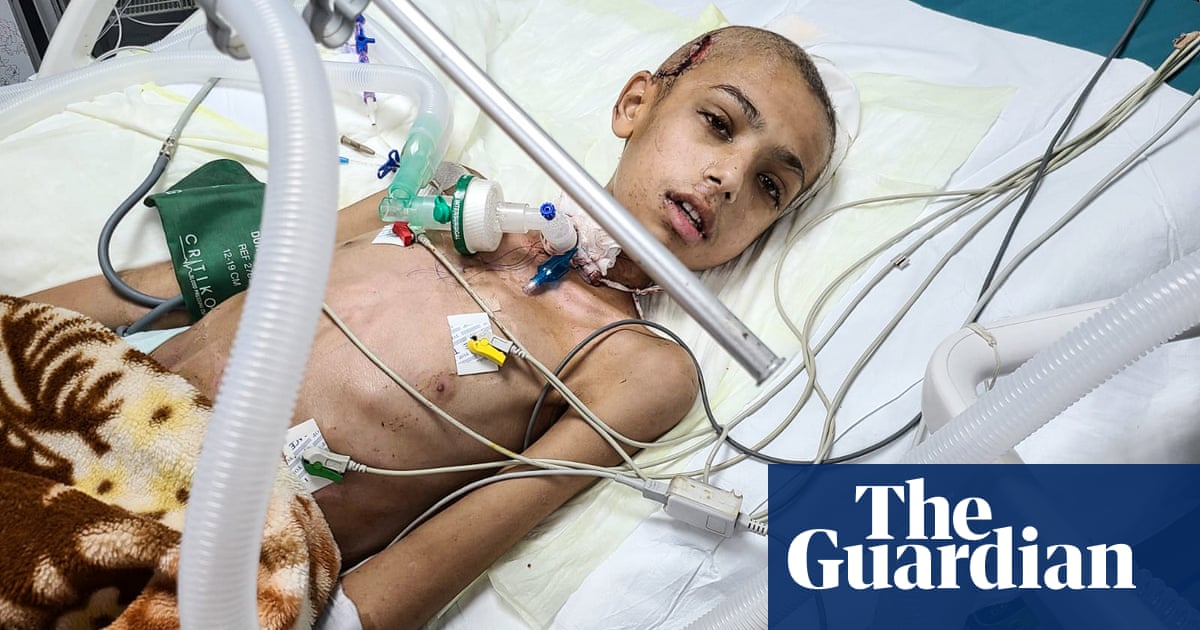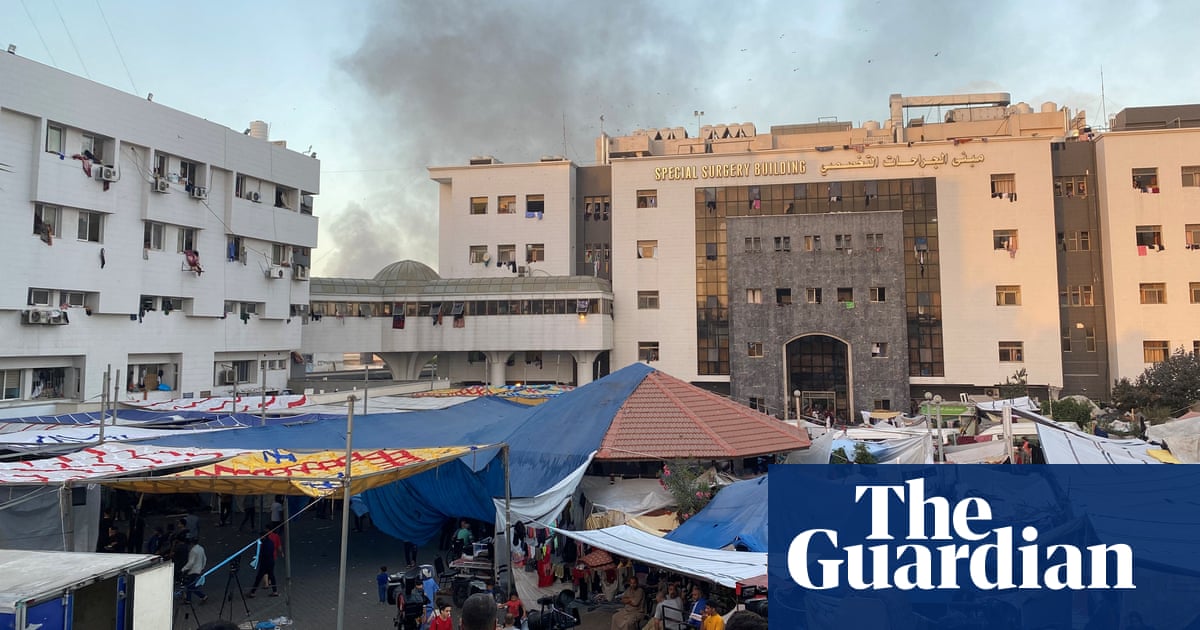
Children being treated in Gaza’s hospitals are “underplaying” pain because it “seems trivial” in the context of the wider conflict, doctors have said.
International medics met in Doha, Qatar, on Saturday to discuss plans for a new trauma pain management manual to support professionals treating children in Gaza and other conflict zones.
Dr Paul Reavley, a paediatric emergency medicine consultant and former British Army medic is leading the project. He said attenders who originated from Gaza, and are in close contact with colleagues there, had passed on descriptions of how child patients behaved.
“The children sort of underplay their pain,” he said. “There has been so much around them, that it’s almost [as if] expression of pain and complaints about pain seem trivial.”
They feel “they have to be stronger”, Reavley said. “They’re observing children who are being treated next to their parents who’ve been resuscitated and dying. Compared with that, they lie there and think ‘I have pain’, but if someone asked about it, they don’t want to express it.”
The new manual will be published in Arabic and English, with funding from the World Innovation Summit for Health (Wish), the global health initiative of the Doha-based Qatar Foundation. It follows the Paediatric Blast Injury Field Manual created by Reavley and other members of the Paediatric Blast Injury Partnership in 2019, which has been translated for use in countries including Syria, Yemen and Ukraine.
About one child in six lives at risk in a conflict zone.
While Palestinian medics are “extremely competent in managing trauma”, not all of the doctors treating children are specialists, and there is often a psychological barrier for professionals when it comes to dealing with children, Reavley said.
“When a child who is severely injured and in distress and pain is put in front of you, most adults, as a human being, have a connection that you don’t have to other patients,” he said.
“The success of treating a child well is brilliant. But when a child doesn’t do so well, it is devastating. To empower clinicians to successfully help the child is really important because they benefit from that as well.”
His team will begin producing rapid resources to be shared in Gaza covering information such as painkiller dosing in children. The full pain management manual is expected to be complete by November.
Dr Emily Mayhew of Imperial College London, part of the Paediatric Blast Injury Partnership, said: “Treating children after a blast injury is complicated, as they are still growing. Children are not just little adults.
“This new pain manual will provide the technical information clinicians need all in one place, and the confidence to care for children.”









